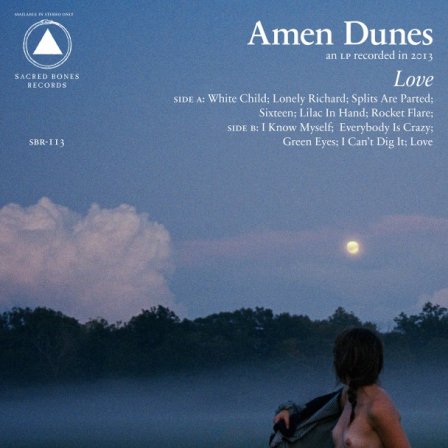Everyone wants to be beyond, or at least be headed in that direction. After the ashes have blown away and civilizations have been rendered faint memories, we wanna be the one with the grim satisfaction of both clearly seeing the world’s self-destruction and somehow escaping the unthinkable fate tied to it. We wanna think around our emotions, laugh about them before they become troubling obfuscations. Skip doubt and faith altogether and go straight for the full potential of naked intuition. Everyone wants to survive and attain due potential, not having been wrong about every damn thing. But we’re mostly just lucky if we can park ourselves anywhere near the sticking post of existence.
Serving up an elegant platter of lazy, yet purposeful, finely-etched psychedelic folk rock of the high-haziest order, Damon McMahon feels well beyond. The world is ever being ripped apart by human vice (and ever fighting back), and Damon’s impassioned voice is like the unbroken edifice amid the gales and torrents. Love falls on us suddenly. It’s an embarrassing thing, but if we don’t go red and reticent and prematurely rectangled (that’s dead and buried), it’s just like all the other impossible things that redeem a realm beset on itself. Love makes sense for any time; we’re just lucky enough to have it now. It’s jam packed with earnest-to-goodness pleasure, perhaps epitomized by my new favorite (Amen Dunes) song, “Splits Are Parted.” This miraculous tune (I’ve heard warbles and warbles, but none so winsome as the lilting McMahon employs here) chases down the sunset on brisk spindly legs, ripping through fields of tall grass like nothing. This is one of those tracks that assails so stridently that it’s all you can do to not wonder where they’ve been all your life.
“I Can’t Dig It” rushes out at one like a garage-punk workout, but then transforms into an inverted auditorium chant by the end, disorienting itself into an opaquely slap-happy soup. Little blues, “Sixteen” shoots out with hunched-forward fervor, its echoed voice/muted piano combo rendered pleasantly bizarre by the dizzying cocktails on either side of it. Stetson’s sax juts out massively in the mix on “White Child,” bringing to mind a bracing combination of weary endurance and an alien attack. Despite its humble soft-rock surface, “Rocket Flare” embodies its name fantastically: the song lithely pings a generously arcing comet across a breezy blue sky, and the listener follows in mute wonder. The measures retain a sense of diminishing as well, elementally suggesting the fleeting nature of the fascination itself.
Besides just being annoyed with my own tendency to compare/contrast, the music on here is both too succinctly fascinating and infectious to make one take notice or care too much about what it recalls. There’s that trenchant songwriting style (a lot of feather-light trance and percussive thrums urging on McMahon’s sharply enunciating reverbed voice and plaintive, yet unerringly vexing lyrics) riding a bed of tasteful mid-fi production, amounting to a framework not especially dissimilar from Amen Dunes circa 2011. The main developments here are collaboration and refinement. Rather than the usual two-week, semi-improvised solo recording sessions, McMahon spent a year and a half with some collaborators (past cohorts Jordi Wheeler and Parker Kindred, some members of Godspeed You! Black Emperor, Colin Stetson, plus a duet partner in Iceage’s Elias Bender Ronnenfelt) in Montreal. Some followers of Amen Dune’s work may balk, but that’d be a bit hasty. The more you take these songs in, the more this new refinement is shown to be an aperture expansion for an already sharply rendered musical entity. The songs themselves are just as slippery as what came before, despite their sleeker pop adornments.
As the cover and title suggest, this record is a meditation on sensuality and passion as much as a night swim in their mysterious essence. It’s the sound of struggling about grace notes — glimpsing perfection but not daring to sully it with possessiveness. In practice and in philosophy, it seems to both welcome and spurn close scrutiny. There isn’t a moment wasted or a shred of self-consciousness on display. The level of patient mastery shown here is decidedly rare. What Slither or An American Werewolf in London are to horror comedies, Love is to art pop. It’s a masterclass in formal brilliance meeting dogged idiosyncrasy on equal footing. Here’s hoping these 11 gems are just the beginning of what McMahon has in store for us weary, shadow-cast blunderers of the world that so desperately need his light.
More about: Amen Dunes




